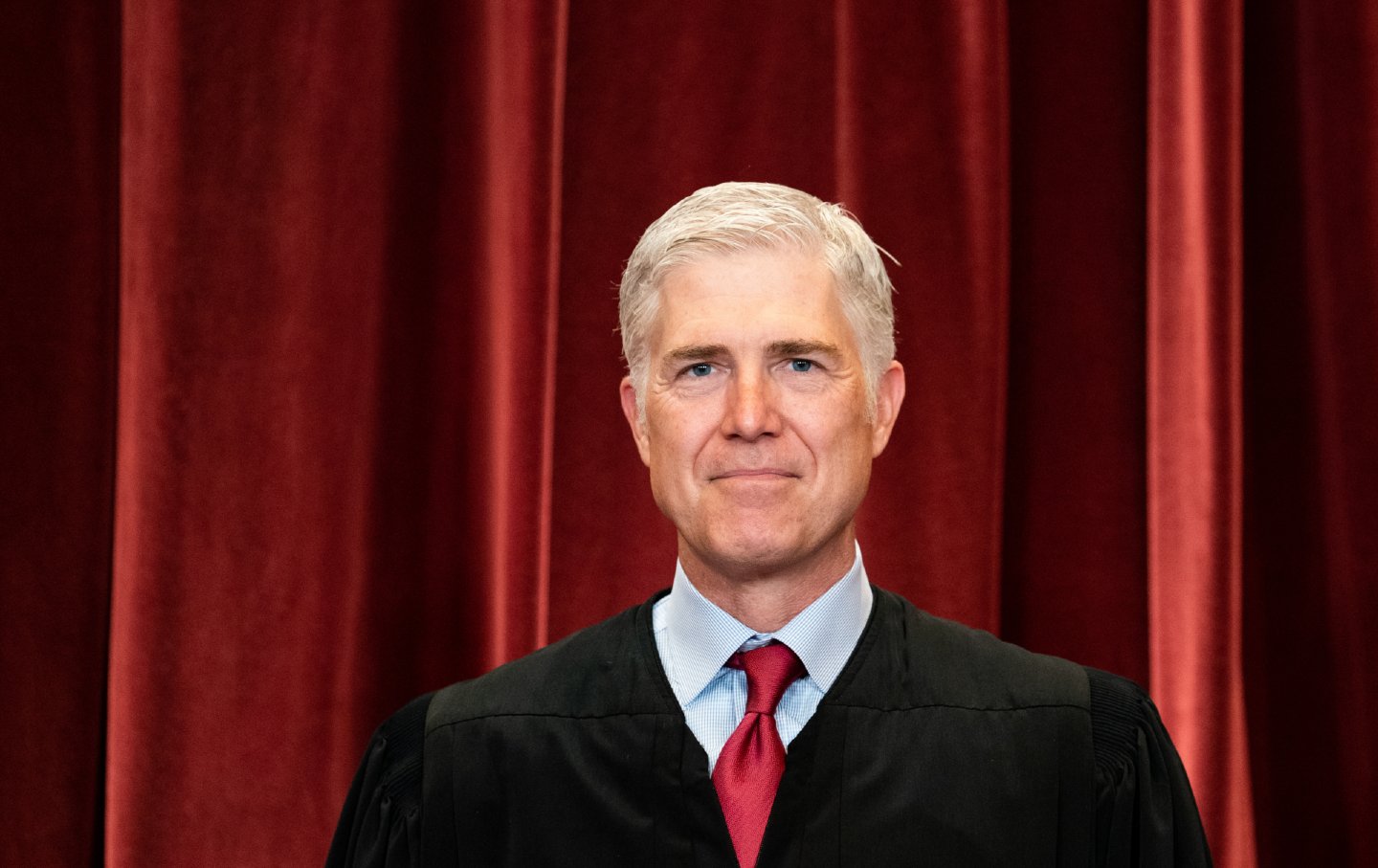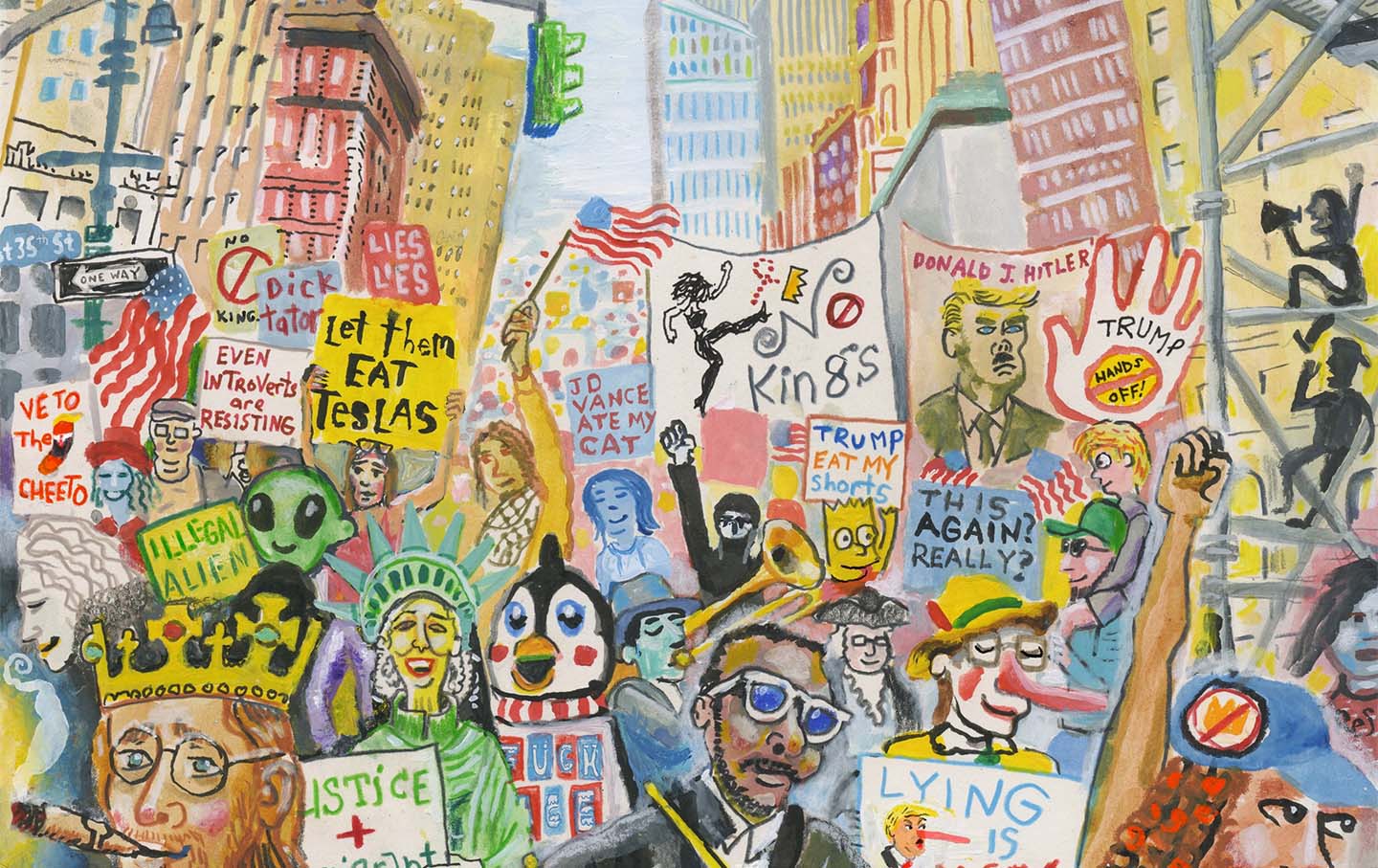JD Vance Is the Wrong Answer To a Very Real Problem Facing Men
Men are in a crisis, for sure. But JD Vance is not the example of masculinity that those who are lost should follow.

JD Vance.
(Getty Images)
Shortly after Trump announced that JD Vance would be the vice presidential nominee, an alarming tweet crossed my path. “JD Vance is the most successful American under the age of 40. Veteran, college in two years, Yale Law, hedge fund, memoir that has sold more than 2 million copies, senator, now prospective VP. He should have overwhelming gratitude for this country. Let’s see if he shows it,” wrote former Ronald Reagan speechwriter John Podhoretz.
JD Vance is undeniably successful. But other than the first sentence, nothing in Podhoretz’s tweet is technically inaccurate. (Well, Vance worked in venture capital, not at a hedge fund, but as I often thought while swiping through Hinge in San Francisco: same thing). Yet there’s something very dark about the subtext here: the idea that Vance is a model of a successful American man that others should emulate.
Among other reasons, Trump likely chose Vance to reach even more of the disaffected young men who helped him succeed in 2016. I say that because I can’t think of another constituency Vance could possibly appeal to. As the above tweet demonstrates, Vance pairs his rage at the “establishment” with a whole lot of conventional success. But his comments about women, immigrants, the LGBTQ community, and any other number of minority groups reads like a response to rejection, even though he doesn’t seem, from the outside, like he’s been rejected an enormous amount. I have little insight into his personal life beyond what everyone else has, but Vance met his wife in his 20s, and she happens to be a highly successful daughter of immigrants (the irony). Both of them appear to have been accepted by every elite institution whose membership they pursued. In fact, he wrote an entire book about how he overcame difficult circumstances to get into Yale Law School.
But his words often sound like they could be coming from a two-bit incel. Vance hates women who don’t have children (which isn’t far removed from hating women who don’t have sex); he recoils when he’s called “weird,” and he’s comfortable assigning women roles based on their age. His version of masculinity is insecure, backward-looking, and grievance-driven: If women only behaved as they had in the 1950s, men wouldn’t be so miserable, he seems to be saying. If the sexual revolution hadn’t upended norms around marriage, women would lower their expectations and settle for less. If we hadn’t sent all those jobs to China, men could still work in manufacturing, instead of stooping to the level of “girly” industries like caregiving. Because of Vance’s conventional success, he can credibly say that men aren’t the problem. Men don’t need to change—society does.
This brand of masculinity has caught on, in some ways. Vance does look manly, and by that I mean, he has a beard, which is uncommon for politicians. Just this week, Vance fans started carrying around cups of fake Vance sperm. Personally, I think this is disrespectful, as Vance is a practicing Catholic and takes every sperm seriously, but it’s clearly a sign of admiration: They find him so masculine they want to carry around his manly byproduct.
Trump’s not wrong to want to reach disaffected young men. Op-ed after op-ed has acknowledged the crisis men are facing, whether it’s their declining rates of college enrollment, increasing suicide rates, lower life expectancy, dwindling levels of employment, or troubling levels of Joe Rogan podcast subscriptions. Solutions for the crisis abound, too: Josh Hawley says we need to ban pornography. Brad Wilcox says people need to get and stay married. Richard Reeves, who’s done an incredibly thoughtful analysis of the problem, recommends starting boys in school a year later because of research that suggests boys mature more slowly than girls do. Vance’s solution, so far, seems to be to rage against modernity—to stay mad until society regresses.
I don’t know what the answer is to the crisis of masculinity, but I’m a big believer that the first step to solving any problem is to acknowledge its existence. For this reason, I’m grateful the Harris campaign has offered an appropriate foil to Vance’s angry masculinity: Tim Walz.
Walz’s masculinity is positive. I mean that in the fullest sense of the term. Positive masculinity is more than just the absence of toxic masculinity: It’s about embracing what’s distinctly good about men. I can admit that in an effort to promote genders that have historically been marginalized, (some) liberals have failed to value men for their unique traits. There’s no contradiction between accepting that gender is a spectrum, and recognizing that somewhere along that spectrum lies cisgender men, who deserve to be respected for what they bring to the table. Positive masculinity is a man walking a female friend home at night if she feels unsafe. It’s moving furniture. It’s doing home repairs. It’s the joke circling the Internet that Walz is the kind of guy who would help you change your tire. It’s how Walz was the faculty adviser for the gay-straight alliance at a rural Minnesota high school 25 years ago because they needed a masculine figure like the football coach to lend legitimacy and safety to their organization. It’s using masculinity for good.
Walz’s positivity is the start of a solution for disaffected men. Unlike Vance, Walz is a helpful, welcome member of a community. Vance, on the other hand, acknowledges men’s suffering, but he offers them nothing more than a vicious cycle of rage and rejection. Men who copy Vance’s behavior won’t find the success he’s had. With a few notable exceptions—like Jake Gyllenhaal in Presumed Innocent—unrelenting anger isn’t sexy. The angrier and more misogynistic a man becomes, the more society will reject him, which will only make him angrier, and so on. It’s the fundamental tragedy of incels.
Podhoretz’s tweet about Vance’s success came the day after he was chosen as the GOP’s VP pick. In the weeks since, Vance has fallen flat. His star has dimmed. Like Icarus, he flew too close to the sun. And now, he is the nation’s foremost laughingstock. A joke about him having intercourse with a couch went enormously viral because, well, it seemed like it could be true. Celebrities are making fun of him. He’s been humiliated for his dolphin-sex search history. After weeks of bad press, he himself agreed with Trump that running mates don’t matter. He declined to denounce racist attacks against his wife, which is just about the least manly thing a man can do. He then told people to stop attacking his wife for her race, because she is hot. (How do you incorrectly answer the question, “What do you say to racists who attack your wife?” twice?) Vance is just plain embarrassing.
But amid his failures, I feel hopeful for men. So far in this election cycle, Trump is the only person who’s chosen him, and the decision has obviously backfired. His approval rates are at historically low levels for a VP nominee—not to mention lower with men than with women—while the Harris-Walz ticket surges in the polls. I don’t think having Tim Walz as our vice president will solve all the problems facing men. But a rejection of the masculinity Vance offers is a pretty good start.
Disobey authoritarians, support The Nation
Over the past year you’ve read Nation writers like Elie Mystal, Kaveh Akbar, John Nichols, Joan Walsh, Bryce Covert, Dave Zirin, Jeet Heer, Michael T. Klare, Katha Pollitt, Amy Littlefield, Gregg Gonsalves, and Sasha Abramsky take on the Trump family’s corruption, set the record straight about Robert F. Kennedy Jr.’s catastrophic Make America Healthy Again movement, survey the fallout and human cost of the DOGE wrecking ball, anticipate the Supreme Court’s dangerous antidemocratic rulings, and amplify successful tactics of resistance on the streets and in Congress.
We publish these stories because when members of our communities are being abducted, household debt is climbing, and AI data centers are causing water and electricity shortages, we have a duty as journalists to do all we can to inform the public.
In 2026, our aim is to do more than ever before—but we need your support to make that happen.
Through December 31, a generous donor will match all donations up to $75,000. That means that your contribution will be doubled, dollar for dollar. If we hit the full match, we’ll be starting 2026 with $150,000 to invest in the stories that impact real people’s lives—the kinds of stories that billionaire-owned, corporate-backed outlets aren’t covering.
With your support, our team will publish major stories that the president and his allies won’t want you to read. We’ll cover the emerging military-tech industrial complex and matters of war, peace, and surveillance, as well as the affordability crisis, hunger, housing, healthcare, the environment, attacks on reproductive rights, and much more. At the same time, we’ll imagine alternatives to Trumpian rule and uplift efforts to create a better world, here and now.
While your gift has twice the impact, I’m asking you to support The Nation with a donation today. You’ll empower the journalists, editors, and fact-checkers best equipped to hold this authoritarian administration to account.
I hope you won’t miss this moment—donate to The Nation today.
Onward,
Katrina vanden Heuvel
Editor and publisher, The Nation








